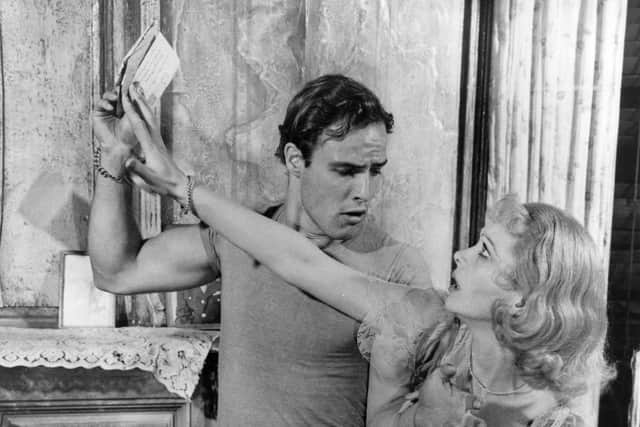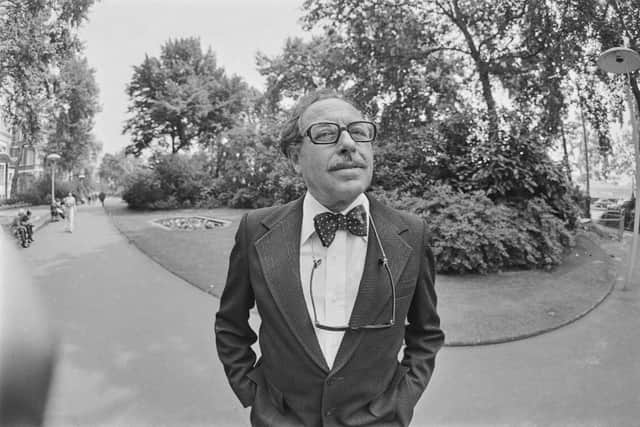How Tennessee Williams, and his sister Rose, helped me find my true self – Clare Cockburn
“Do what you were created to do. You'll know what this is, because it is what you keep creeping up to, peering at, dreaming of. Do it. If you don't, you'll be punching clocks and eating time doing precisely what you shouldn't, and you'll become mean and you'll seek to punish any and all who appear the slightest bit happy, the slightest bit comfortable in their own skin, the slightest bit smart. Cruelty is a drug, as well, and it's all around us. Don't imbibe. Try to matter. Try to care. And never be afraid to admit that you just don't know, you just don't know how you're going to make it. That's when the help shows up. The human and the divine.” The words of playwright Tennessee Williams in 1982.
Had I read this quote when I was a much younger woman, would I have known how to factor all the components of it into my life? Back then, with a young family, days and nights full to the brim with the buzz all that brings, there was indeed a nagging voice in my head, a recognisable one, telling me I was also here for another reason. I often wrote for other people in my work but I knew I should also be writing for someone else – me. Most of the time I would ignore that voice.
Advertisement
Hide AdAdvertisement
Hide AdThat one thing I had always been good at, the books I cobbled together as a child and showed to Mum to read, the stories that were read out in class, the children’s books I wrote and self-published, the award I won at university, the list grew longer and longer until later in life when I found myself at a difficult crossroads, I realised the only thing I could truly rely on was that thing, talent, gift – the thing that had always been there and which for some reason, I did not think of as important enough to take seriously.
Now, I was going to have to put my ability as a writer to the test because suddenly, the chips were down. I was going to have to test out the theory that turning my back on it and pretending it wasn't real had not worked. It was there staring me in the face and I would have to take a leap of faith.
The day I took myself seriously as a writer was probably the day I sat down and wrote the first scenes for Tennessee, Rose. I knew immediately what I would call the play, having been intrigued for years about this silent witness to Tennessee’s stellar rise to fame as one of America's greatest playwrights. What would happen if I gave Rose, Williams’ sister and muse, a voice? And so my subject matter was born.
Much has been written about his life, but what about hers? Like so many women of that period in history, her story was swept under the rug – a family tragedy to be ashamed of. Those first scenes I wrote, where Rose and Tennessee meet across a parallel universe, in heaven or another spiritual realm, got me a place on the MSc playwriting course at Edinburgh University. There were only four of us with playwright Nicola McCartney as course leader and she teased three plays from us over our time there. One of them, for me, was a first draft of Tennessee, Rose.
It was a bit rough and ready, not particularly well received but, as with things theatrical, a collaboration of equals was about to happen. A friend and colleague of many years, Anthony Alderson, of the Pleasance Theatre Trust, and now my co-producer, introduced me to director Patrick Sandford, himself an award-winning director with an interest in Tennessee Williams.


In a somewhat similar way to the patchwork quilt in Tennessee, Rose, the patchwork quilt of my own story was becoming hard to ignore. I knew I was on a pathway to creating something interesting about a forgotten woman who provided the world with some of the greatest theatrical heroines. Meanwhile, Patrick provided me with exceptional dramaturgical support throughout the ups and downs of Covid.
I was churning out property brochures to keep myself afloat. A labour-intensive way, I discovered, for a creative to get herself through Covid times. A playwright cannot exist on fresh air alone – or the kindness of strangers. However, to use one of Williams’ famous lines, it was the kindness of strangers that I often encountered along the way who provided a light in the darkest of times.
I am full of gratitude to those who believed in me enough to support my work and get the play off the ground. To the wonderful actors who have come on board – Anne Kidd, Aron Dochard and Helen Katamba. Three amazing people who believe in the script and whose work should not be missed on stage during the Edinburgh Fringe. My heartfelt thanks to Patrick and Anthony too.
Advertisement
Hide AdAdvertisement
Hide AdSo, back to that quote and to anyone reading who has reached an age or stage where the nagging voice is no longer something they can justifiably ignore, be it for mental health reasons, a financial crisis or some other curveball that life has thrown at them. Would the younger woman that I was have known what to do with it?


Probably not, but it was the feeling that I chose not to ignore – call it my inner voice – that led me to where I am now. A 54-year-old woman who followed, maybe not dreams, let's call it instead a rocky path with no guarantees and three young children in tow, on the only direction I knew to be a true representation of who I was and why I might be here, and it makes sense to me now.
Tennessee, Rose will be performed at The Pleasance during the Edinburgh Festival Fringe, August 2-28
Comments
Want to join the conversation? Please or to comment on this article.
